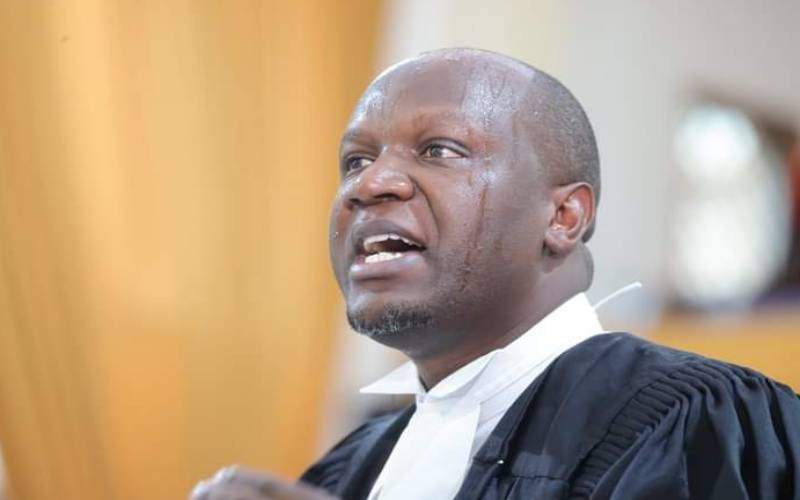×
The Standard e-Paper
Stay Informed, Even Offline

Lawyer Willis Otieno on Wednesday asked the Supreme Court to recommend sanctions against the chairperson of IEBC Wafula Chebukati.
Otieno, who was representing David Kariuki, the fourth petitioner in the presidential petition, argued that Chebukati was responsible for the disputes that have arisen from the August 9 polls.